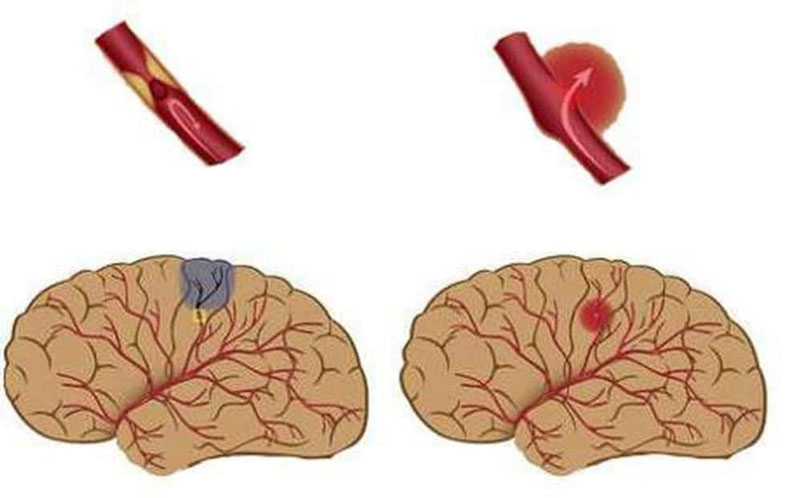Dizziness is a feeling that anyone can experience once or many times. This condition is caused by many reasons, but if this condition persists, it should not be ignored.
1. What is dizziness?
Dizziness and headaches are not considered diseases but rather symptoms or syndromes of a disease in the patient. It is possible that insufficient blood supply to the brain will cause nerve cells to not have enough oxygen and nutrients needed for daily activities.

Dizziness occurs when the brain does not receive enough blood, causing a lack of oxygen and nutrients to the nerve cells.
Although these are just simple signs, the patient must undergo a comprehensive neurological examination, internal medicine examination, ENT examination, etc. and perform some additional tests to help diagnose the cause of this syndrome.
Currently, many people experience this symptom combined with tinnitus and sudden headaches. Usually, they will have the habit of going to the pharmacy to buy medicine to take at home or let the disease go away on its own, only when it becomes severe will they go to the hospital for examination.
This is a symptom of some diseases such as low blood pressure, anemia, vestibular disorders, etc. In addition, it is also a sign of some diseases such as vascular malformations, brain tumors, inner ear damage, etc.
2. Classification
Based on the specific description of symptoms of the patients, they can be divided into the following groups:
- Spinal vertigo: the patient feels that everything around them is spinning around them or they themselves are spinning around objects, making the patient susceptible to falling. This type of rotation appears slowly or suddenly, causing anxiety for the patient and affecting the quality of life.

Spinal vertigo makes it difficult for the patient to maintain balance and is prone to falls.
- Vertigo: This is a type of dizziness that can easily cause the patient to faint, and is more likely to have other diseases than the above-mentioned spinning type.
- Vertigo of the imbalance type: This type is characterized by a decrease in the patient’s ability to maintain balance. The patient cannot walk steadily as usual, and even has difficulty standing still.
If the patient can describe in detail the condition he often experiences, it will help the doctor classify and determine the cause behind it to get the appropriate treatment. A patient can experience one type or many different types that occur in different disease onsets.
3. Causes of this condition
There are many causes of this syndrome, related to many other organs such as the cardiovascular system, nerves, and metabolic abnormalities inside the body. Clinically, when working with patients, doctors will divide them into two main groups: peripheral dizziness and central dizziness based on the cause of the disease.
3.1. Peripheral dizziness
This group is not related to abnormalities in the central nervous system, the brain and spinal cord, but they are located in the vestibular cochlear system in the inner ear. The system of semicircular canals located in the inner ear has the role of orienting the head position, transmitting signals to the brain to help maintain balance for the body.
When the body has disorders caused by inflammation, viruses, stones, etc., the function of the vestibular system cannot be complete. The patient will feel dizzy and lose balance. Some diseases that cause this condition include:
- Inner ear inflammation: the inner ear canal is where many components of the peripheral vestibular system, including the semicircular canal and cochlear nerve receptors, have the function of helping the body maintain balance. If the pathogens are viruses or bacteria that affect the inner ear, the patient will experience dizziness, hearing loss, tinnitus, and fever.

Otitis media occurs when viruses and bacteria attack this organ.
- Cranial nerve 8 inflammation: cranial nerve VIII is also known as the vestibulocochlear nerve, which plays a role in maintaining balance for the body.
- Benign paroxysmal positional vertigo: this is considered the most common cause in clinical practice. Patients with this condition often experience frequent dizziness when changing from sitting to standing or lying to standing. This condition usually lasts from a few seconds to a few minutes, accompanied by nausea and vomiting.
- Meniere’s disease: this abnormal condition is quite rare in the inner ear. This symptom caused by Meniere’s disease is often quite severe, lasting for a few hours to a few days, accompanied by vomiting and long-term hearing loss.
3.2. Central vertigo
Different from the above group, the central vertigo group is a group of diseases caused by abnormalities in the brain, most commonly the cerebellum, the organ that maintains balance for the body. Some specific diseases that cause this condition include:
- Vascular headache or Migraine headache: this disease occurs more in young people, women are more affected than men. In addition, there are some other manifestations such as severe migraine or pulsating pain.
- Brain tumor or cerebellar tumor causes dysfunction, causing the body to move abnormally.
- Neuroma: tumor in the auditory nerve connecting the ear to the brain, is assessed to have genetic factors.
- Cerebral vascular accident: this is an extremely dangerous cause that needs to be checked and ruled out first when this symptom occurs in the elderly with factors such as smoking, high blood pressure, atrial fibrillation, etc.

Stroke is considered the most dangerous disease commonly found in the elderly.
4. Things you should know
In combination with using medication for treatment, patients need to pay attention to the following issues in daily life and eating to help reduce the frequency and severity of dizziness:
- Do not change positions suddenly, when switching from lying to sitting or standing, do it slowly so that the body can adapt.
- Avoid activities that require operating machinery or vehicles if this condition occurs.
- Do not use alcohol, smoke, or use stimulants.

Patients need to abstain from alcohol, smoking and stimulants.
- Drink plenty of water and add green vegetables to your daily diet.
- Do not eat too salty or too sweet foods.
- Relax and rest in a comfortable living environment, do not let your mind be stressed.
Dizziness can be treated if the patient comes to the doctor early and receives effective treatment. When suffering from this syndrome, the patient needs to rest, relax and limit walking to prevent falls.





